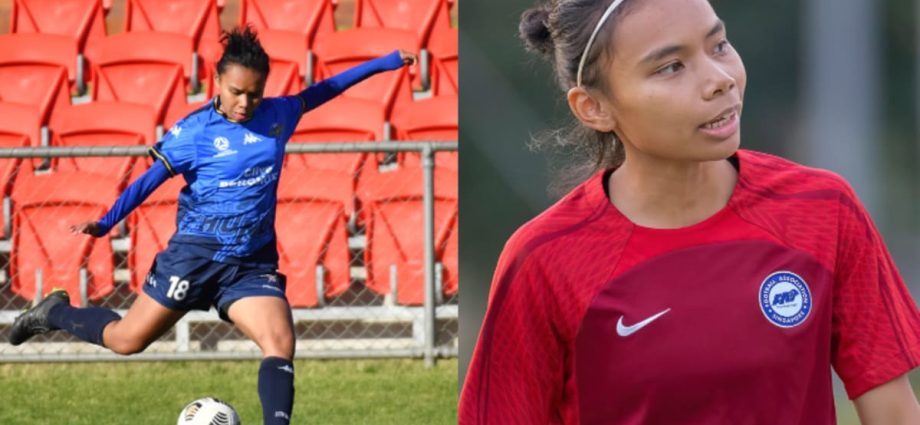
“I didn’t really know how to play then so I would often kick the ground and my toes would bleed. But I enjoyed it (playing),” she added.
Love was forged and her dream began to take shape.
By the age of seven, Rosnani was playing competitively, at first for her primary school’s female football team, then at Woodlands Secondary School.
She was invited to join the junior nationals and by the time she turned 17, her dream had fully formed.
“NO TURNING BACK”
“I admit I was very naive as a young girl,” said Rosnani, adding that she didn’t know at the time what it took to play professionally, only knowing she did not want all the time spent training instead of hanging out with her friends to go to waste.
But even as she became an adult, the dream wouldn’t waver. In a “realistic” move, she studied aerospace engineering at Republic Polytechnic, but told her parents she “wanted to go all the way” with football.
“There was no turning back,” she said, even though she continued to worry that no Singaporean woman had yet been given a professional football contract at the time.
Despite the odds, Rosnani’s parents were supportive, squirreling away any monetary awards their daughter received, including the Singapore Olympic Foundation scholarship set up with billionaire philanthropist Peter Lim, so she could one day choose to venture out of the country alone.
“My parents helped me save because I’d said I didn’t want to use their money to go overseas … It’s my life,” she said.
“I told them this: You can work all your life, through your 40s and through your 50s, but you can’t play at a professional level forever.
“While I can still play, why not go for it? It won’t be easy, financially and in terms of stability, but it’s the experience that matters,” she added.
Rosnani dreams of the day she and her female peers would be offered professional contracts in Singapore.
“Even people I know who don’t really like football watch the Women’s World Cup,” she said. “So I can see it (women going professional) happening … Hopefully soon.”
Meanwhile, female footballers continue to juggle training with other work.
National training takes up around six hours a week and club training occupies around the same amount of time, including weekend games.
“Even though we play in the national team, we’re not professional players. Everyone has other jobs and still commits to training. It’s hard to juggle,” she said.
But Rosnani doesn’t have a full-time job and she doesn’t want one. Her eyes are poised on the prize.
“I’m just doing part-time work because I want to be ready to fly for a trial overseas.
“Japan was just the start.”

